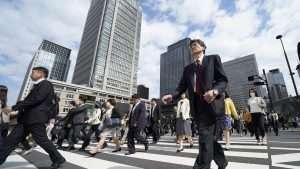
Global economic uncertainties and a sales tax hike in 2019 may have hit hard on capital spending and inflation expectations, warned Bank of Japan policymakers as reflected on the central bank’s minutes of the meeting in December.
One member proposed to impose a stimulant based on the effect tax hike caused on private consumption.
The proposal is unlikely to happen soon, as the rest of the board worry about the growing cost of extended easing, like the damage ultra-low interest rates inflict on commercial banks.
But gloomy economic outlook weighs heavy on market expectations, as soft inflation could cause the BOJ to extend its ultra-loose policy.
In December, BOJ maintained the monetary policy but Governor Haruhiko Kuroda said that Japan’s economic recovery remained at risk.
Despite long-term price moves getting better as concluded by the BOJ, some members said that households’ short-term inflation expectations declined after the sales tax hike.
Concerns were raised on the reduced income of households as manufacturers could cut winter bonus payments due to weak global demands and US-China fallout amid trade war.
Some noted that weakened leading indicators of capital expenditure, a major factor in Japan’s economy, also affected the outlook.
Japan’s economy suffered a slowdown in July-September and could have contracted at the end of 2019 when global trade tensions damaged export demands. BOJ hope a rebound in global growth would support Japan’s export-reliant economy.